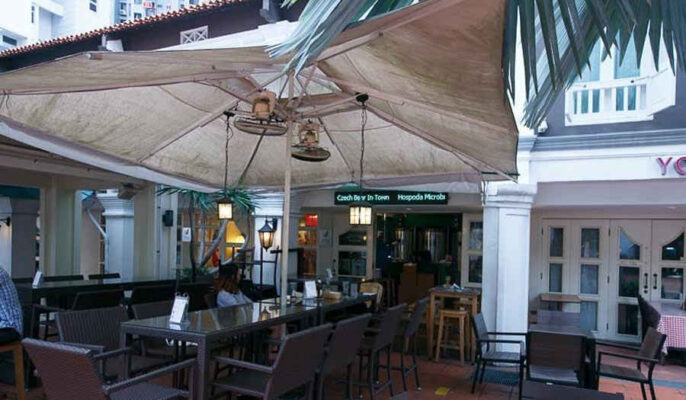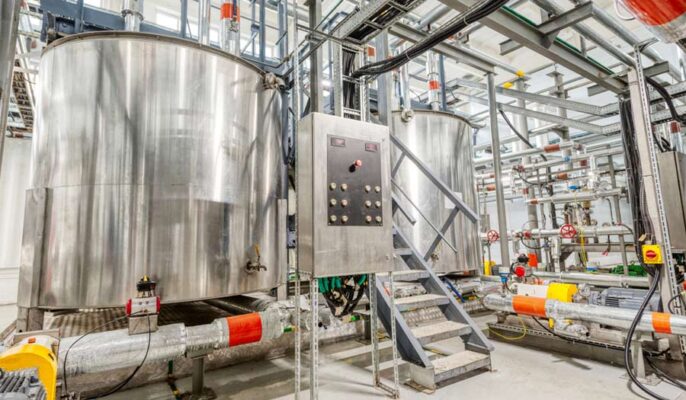Beer brewing has become a popular amenity for hotels to offer guests. Onsite microbreweries and brewpubs provide a distinctive experience and sense of place. Installing the right beer brewing system allows hotels to serve fresh craft beer with unique flavors.
This guide will provide hotel owners and managers a comprehensive overview of setting up an in-house brewery. We cover the equipment basics, types of systems, sizing considerations, estimating costs, top suppliers, installation and maintenance. Read on to learn everything about hotel beer production to tap into this growing trend.
Overview of Hotel Beer Brewing Equipment
Hotels require specialized equipment to brew and serve draught beer onsite. The core components include:
- Brewing system – kettles, mash tuns, fermenters to produce wort and ferment beer
- Serving tanks – bright beer tanks, glycol chillers, filtration to store and dispense beer
- Draught lines – taps, faucets, tubing to pour and serve beer
Additional equipment like milling, yeast management, CIP, automation, etc. improves efficiency and beer quality. Hotels can operate with manual systems or opt for turnkey automated breweries in a range of sizes and budgets.
Types of Hotel Brewing Systems
Hotel beer brewing equipment is available in multiple configurations:
| System Type | Description |
|---|---|
| All-Grain Brewhouse | For full malt brewing of any beer style recipes |
| Brew-in-a-Box | Compact plug and play brewhouse appliance |
| Nano Brewery | Countertop appliance for small test batches |
| Pilot System | Intermediate size for R&D and sampling |
| Production Brewery | Large automated brewhouse for mass production |
All-grain brewhouses offer the most flexibility for brewpub recipes. Brew-in-a-box and nano systems are simpler for hotels starting small. Pilot and production systems allow expanding beer production.
Key Equipment Specifications
When selecting a hotel beer brewing system, assess key specifications:
| Parameter | Typical Range |
|---|---|
| Batch Size | 5 – 30 bbl |
| Production | 3 – 60 bbl/week |
| Boil Kettle Size | 10 – 60 gallons |
| Mash Tun Size | 10 – 100 gallons |
| Fermenter Size | 7 – 30 bbl |
| Serving Tank Size | 5 – 30 bbl |
Match the system size and capacity to the projected beer volume needs. Prioritize quality, efficiency and automation levels as per brewing skill.
Sizing Beer Brewing System for Hotels
Consider these factors when sizing a hotel brewhouse system:
- Number of guest rooms and covers in F&B outlets
- Estimated beer consumption per room/cover per day
- Peak occupancy and sales periods
- Annual beer production targets
- Available space for brewhouse, cellar, serving tanks
- Future expansion plans
Conduct a feasibility study of needs versus costs to pick the optimal system. Oversize the brewhouse capacity to account for seasonal spikes in beer demand. Upgrade equipment later as the hotel brewery business grows.

Types of Beer Brewing Equipment for Hotels
Hotel breweries require specialized equipment for production and serving of beer. Here are the key pieces of equipment needed:
Milling
- Malt mill – crack malt kernels to extract sugars and flavor
- Grist case – temporary malt storage before brewing
- Weighing scales – weigh out grain bill recipes
Mashing & Lautering
- Mash tun – mix milled malt with hot water for starch conversion
- Lauter tun – separate sweet wort from spent grains
- Wort grant – collect and transfer wort to boil kettle
Boiling & Whirlpool
- Boil kettle – boil wort to extract flavors, aromas and sanitize
- Whirlpool – spin wort to separate trub solids
Fermentation & Maturation
- Fermenters – allow yeast to ferment sugars into alcohol
- Brite tanks – condition and carbonate beer before serving
- Glycol chiller – maintain fermentation temperature
- Heat exchanger – cool boiled wort quickly
Filtration & Dispense
- Beer filter – remove haze particles for clarity
- Keg washer – clean and sanitize serving kegs
- Keg filler – fill kegs with beer under counterpressure
- Taps & faucets – pour and dispense beer
CIP & Automation
- CIP skid – automated cleaning in place system
- Control panels – program timers, alarms, temperatures, etc.
- Sensors – monitor tank levels, gravity, pH, etc.
Yeast Handling
- Yeast propogator – grow yeast strains from lab to pitchable form
- Yeast storage – keep yeast in optimal conditions between uses
- Aeration stone – oxygenate wort for healthy fermentation
Malt Handling & Storage
- Malt silo – bulk malt storage and handling system
- Screw conveyor – automatically transport malt and grain
CO2 Capturing & Purging
- CO2 Scrubber – capture CO2 from fermentation
- CO2 purge – blanketing tanks with CO2 protects beer
Grain Out / Spent Grain Removal
- Grain out auger -remove spent malt from lauter tun
- Spent grain screw – transport wet grains out of brewhouse
Estimated Costs of Hotel Brewing Equipment
Hotel beer brewing equipment represents a major capital investment. Here are typical price ranges:
| Equipment | Cost Range |
|---|---|
| All-Grain Brewhouse | $50,000 – $500,000 |
| Turnkey Nano Brewery | $5,000 – $20,000 |
| 7bbl Direct Fire Brewery | $100,000 – $250,000 |
| 15bbl Electric Steam Brewery | $250,000 – $750,000 |
| 30bbl Automated Brewhouse | $500,000 – $2,000,000 |
| Glycol Chiller | $5,000 – $15,000 |
| Bright Beer Tank | $5,000 – $15,000 per tank |
| Beer Filter | $10,000 – $50,000 |
| Draft Dispense System | $2,000 – $10,000 per tap |
Larger systems with automation and advanced features have higher costs. Ongoing costs include ingredients, labor, maintenance, etc.
Top Beer Brewing Equipment Manufacturers
Reputable equipment manufacturers for hotel breweries include:
| Company | Location | Notes |
|---|---|---|
| Specific Mechanical | Victoria, Canada | Custom brewhouses, nano to large scale |
| Premier Stainless | Escondido, USA | Budget to high-end systems |
| Rolec Prozess | Leese, Germany | automated, eco-friendly |
| JVNW | Canby, USA | Stainless steel tanks, glycol |
| GW Kent | Ypsilanti, USA | Fermenters, brite tanks, dispense |
| Craftmeister | Houston, USA | Plug and play brewhouses |
| Stout Tanks | Portland, USA | Custom fermenters, serving tanks |
| ABS | Milwaukee, USA | Pumps, conveyors, material handling |
Consult with vendors when selecting systems and request quotes for required equipment.
How to Choose Hotel Brewery Equipment Suppliers
Follow these tips for choosing the right brewery equipment company:
- Review their brewhouse project portfolio specifically for hotels
- Assess the range of system sizes they offer
- Evaluate quality of tanks, parts, workmanship
- Ensure they follow safety standards and regulations
- Check if automation tech and IoT monitoring are available
- Consider aftersales support for maintenance and repairs
- Compare pricing of equipment packages and options
- Look for customization flexibility for your needs
- Opt for transparent upfront pricing, avoid hidden charges
- Check lead times and shipping reliability
Setting Up and Installing Brewery Equipment
Once purchased, brewing equipment must be properly installed. Here are key steps:
Prepare brewery space
- Demarcate brewhouse, cellar, serving area
- Install correct electrical, plumbing, ventilation
- Flooring should be anti-slip, easy to clean
- Walls and ceiling should be smooth, impervious
- Lighting must be shatterproof and dust-proof
Receive and inspect
- Check delivered items match purchase order
- Verify specifications, fittings, wiring is accurate
- Ensure no damage occurred during shipping
- Review safety compliance certification
Set up equipment
- Position tanks, vessels per layout plans
- Allow access for operation, cleaning, maintenance
- Install instrumentation – thermometers, sensors, automation
- Test run pumps, motors, electricals for issues
- Check valve seals, steam/glycol connections for leaks
- Have manufacturer technician validate installations
Trial brewing
- Perform water calibration brew without malt and yeast
- Confirm heating times, flows, gravity readings
- Make adjustments and tune PID controllers
- Fix any issues prior to starting commercial production
Documentation
- Catalog equipment serial numbers for inventory
- Maintain manuals, parts lists for each item
- Log types, models and capacities in database
- Track maintenance records and calibration data

Operating Brewing Equipment Safely
Once installed, hotel brewery equipment must be operated properly to produce quality beer safely. Follow these guidelines:
Staff training
- Train brewers thoroughly on equipment use procedures
- Emphasize importance of Personal Protective Equipment (PPE)
- Ensure they follow safety, lockout protocols
- Provide operating manuals, SOPs for reference
Equipment inspection
- Visually inspect tanks, valves, pipes, fittings periodically
- Check for damage, leaks, blockages
- Confirm safety guards are in place
- Test emergency stops, valve locks routinely
Hygiene
- Strictly follow cleaning and sanitation SOPs
- Monitor CIP temperatures, cycles
- Ensure chemicals are food-grade for surfaces in contact with beer
Maintenance
- Perform preventive maintenance per schedules
- Lubricate, adjust, calibrate moving parts
- Check gaskets and replace worn ones
- Confirm correct grounding, electrical insulation
- Document all repairs and parts replacements
Compliance
- Regular audits to ensure adherence to procedures
- Address non-conformances immediately as they arise
- Maintain compliance with local regulations
Maintaining Hotel Brewing Equipment
Proper maintenance keeps hotel beer brewing equipment functioning optimally for food safety and consistent quality.
- Daily inspections – check for leaks, damage, unusual performance, record tank pressures, temperatures, etc.
- Cleaning – follow CIP protocols, break down vessels for manual cleaning
- Sanitation – use approved chemicals, hot water cycles to sanitize all surfaces
- Calibration – adjust sensors, thermometers, gravimeters periodically for accuracy
- Preventive maintenance – lubricate, adjust parts per schedule, replace gaskets, fittings as needed
- Tune-ups – optimize process parameters, heating cycles, pressure settings, etc. for efficiency
- Repairs – troubleshoot issues, replace worn parts like impellers, valves, heating elements
- Recordkeeping – document all maintenance activities including time, spare parts, costs
- Support contracts – utilize manufacturer maintenance deals for large repairs, reconditioning
- Staff training – ensure in-house technicians and brewers are trained on equipment care
Proactive maintenance minimizes equipment downtime and keeps the hotel brewery running smoothly.
FAQs
Q: What size brewhouse system do hotels need?
A: Size brewing system based on peak beer production needs – allow for 20% excess capacity. Aim for 2-7bbl system for smaller hotels or 5-15bbl for larger properties.
Q: Should hotels lease or buy brewing equipment?
A: Outright buying allows customization but leasing may be economical. Compare costs including operations, maintenance and depreciation before deciding.
Q: How much space is needed for a hotel brewhouse?
A: Approximately 1500 – 3000 sq ft is needed for a 10 bbl microbrewery. Allow additional space for cellar tanks and serving area.
Q: What electrical, plumbing and ventilation is required?
A: Breweries need 200-400A electrical service, 2″ water lines, drains for CIP, HVAC for heat/steam removal. Follow local electrical and building codes.
Q: How many staff are needed to run a hotel brewery?
A: For a 10bbl system, 2-3 trained brewers for production and 1-2 servers for the taproom. Additional managers oversee sales, marketing, etc.
Q: What are the ongoing costs of operating a hotel brewery?
A: Variable costs of ingredients, packaging, labor plus fixed electricity, water, maintenance and loan repayment/lease.
Q: How much beer can a hotel brewery produce annually?
A: An efficient 10 bbl hotel brewery can produce 2500-4000 bbl annually if operated 1-2 shifts daily. Larger systems have exponentially higher production.
Q: How long does it take to brebrew beer in a hotel?
A: The brewing process takes 4-6 hours. Fermenting and conditioning take 1-2 weeks. So allow 3-4 weeks from grain to serving beer.
Q: What temperature is needed to brew beer?
A: The mash conversion temperature is ~155°F. Boiling temp is 210-212°F. Fermentation temps vary by yeast strain between 60-75°F.
Q: How much beer do hotels need for in-room minibars?
A: Estimate 2-4 cans per room for 50% occupancy, so a 200 room hotel needs 200-400 cans daily. Adjust for your occupancy.




